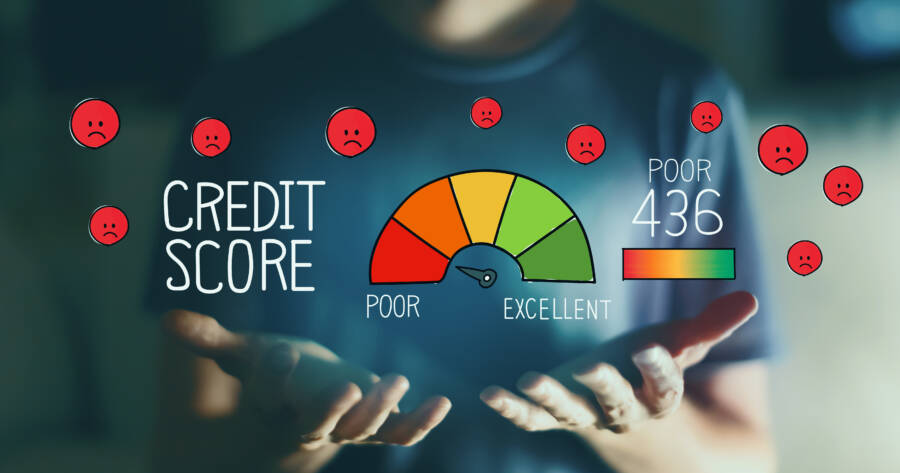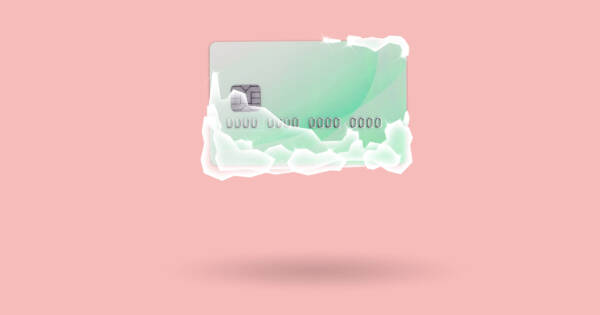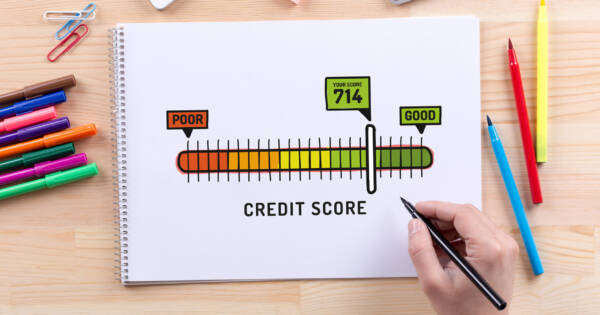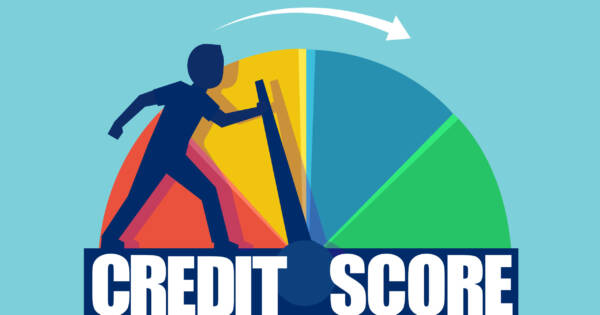Most people realize that a poor credit score leads to higher interest rates and pricier loan terms, yet far fewer recognize how deeply those numbers can influence everyday life. A low score can affect far more than borrowing costs, reaching into decisions, opportunities, and overall financial stability. Understanding the wide-ranging ripple effects can serve as a strong motivator to maintain healthy credit habits and prevent issues that extend well beyond the initial financial setbacks.
What’s Counts as a Bad Credit Score?
Before we get started, though, let’s take a minute to talk about credit scores in general. You might think that 0 is bad, but it doesn’t actually work like that. Most major credit score models use a range between 300 and 850 (and sometimes 900). The higher your score, the better your credit is.
While different credit bureaus use slightly different rankings, here’s a typical way to view your score:
- 300 to 579: Poor
- 580 to 669: Fair
- 670 to 739: Good
- 740 to 799: Very Good
- 800 and above: Excellent
For the purposes of this article, we’re likely talking about those with credit scores under 600. While having ‘Fair’ credit might also penalize you a bit in some cases, you should be fine for most of the situations this article will discuss.
Getting A Job
Not all employers conduct background checks on job applications before hiring new employees. However, most employers are legally allowed to, if they choose. These background checks almost always include a credit check or review of your credit history.
Jobs that require you to handle money often include a credit check as part of the hiring process. And yes, applicants can be rejected based on their credit history or score. They assume that your personal financial issues might tempt you to be unsavory with company money.
The good news, though, is that an employer must give applicants a chance to appeal if they are rejected because of their credit history. Credit reports can sometimes include errors that are easily fixed.
Insurance Rates
While interest rates charged on a credit cards and loan can be higher because of a bad credit score, so too can insurance premiums be higher. Car and home insurance companies in most U.S. states have the authority to use a credit score to help determine your insurance rates.
In many cases, having a poor credit score can cost you nearly double the amount you would pay with a good score. It can cost over $3,000 annually, in some cases. Insurers can use a low credit score as justification for raising the cost of premiums, getting you to pay as much as possible.
Utilities
Believe it or not, a bad credit score can impact the amount of money you pay for utilities such as gas, electricity, and even water at your home. Utility companies will often check your credit before they let you sign up for their services.
Utilities technically have the right to outright deny you service for having a poor credit score. However, it’s more common that they will insist you offer a cash security deposit. That’s extra money you may not have, which they will hold (for at least a year) to ensure you pay your bills on time.
Although you eventually get the money back (assuming you stay up to date on your bills), it’s an extra up-front cost that those with bad credit aren’t likely to easily afford.
Wireless Phone Plans
Similar to utilities, a bad credit score can impact your wireless phone plan. Phone companies can insist on a deposit or even put you on a prepaid plan if they don’t like what they see in your credit history.
In some cases, these actions can be temporary. Once you’ve proven to be a responsible (read: paying) customer for a period of time, they will move you to a regular monthly plan. Once again, though, this is an annoying and costly way to get wireless service — something that is almost a necessity these days.
Rental Applications
Landlords and property owners almost always require detailed financial information from applicants. A credit check is fairly standard before agreeing to rent an apartment, condominium, or townhouse. This is done to prove that you’re a reliable tenant that will make rent payments on time.
Landlords can go so far as to demand to see proof of current income or previous rent payments. They may even ask for references, so they can speak to your former landlord about you.
Refinancing
If you’re looking to consolidate debts or refinance a mortgage, you might have a difficult time with a bad credit score. Banking rules in the U.S. are becoming stricter all the time. Your creditworthiness is critically important to getting a decent interest rate on any refinance or loan consolidation.
Getting a loan to undertake any type of home improvement is nearly impossible with a bad credit score. Basically, those with a bad credit score can find themselves stuck financially. With little extra money to begin with, the extra expenses associated with a bad credit score make it almost impossible for many people to improve their situations.
Travel
Travelling is increasingly difficult using only cash. You can’t do many travel-related things — book airline tickets, rent a car, or reserve a hotel room — without a credit card. And having a bad credit score means that getting a credit card (especially one with a reasonable interest rate) almost impossible. You can get a secured credit card, but once again this costs you money up front in the form of a security deposit.
Car rental companies can also refuse to serve a customer or provide them with the needed insurance to rent a vehicle if they don’t like their credit score. Whether you’re travelling for business or pleasure, poor credit makes it much harder for you to be mobile in today’s fast-paced world.
Professional Licensing
The Fair Credit Reporting Act allows government agencies that regulate professions to assess and consider credit reports. This means that states can require proof of creditworthiness before issuing professional licenses. For example, medical licenses to doctors or construction licenses to contractors.
Maintaining a strong credit score is therefore important for anyone working in a range of different professions. Should your credit score drop to unacceptable levels, it could impact your ability to get the license you need to earn a living.
How to Raise Your Bad Credit Score
There are multiple ways to raise your credit score, both actively and passively. Unfortunately, it’s almost never a speedy process. It can takes months — even years — to boost your credit score enough to get to the next rank. That being said, do yourself a favor and start small. Pay all your bills on time and try to reduce your debt and credit utilization.
There are services that promise to boost your credit score, but you should be wary of them. Many of them are simply going to charge you interest on a small loan. They they report your payments to the credit bureaus. (Or even worse, collect your payments first and then give you back your own money — minus fees.)
Having a history of on-time payments is definitely a good thing, but it’s hard to suggest these services are truly worth the cost. Instead, just dedicate yourself to making smarter credit decisions. Your score will slowly rise accordingly.
The Bottom Line
A good credit score is more important than most people realize. Bad credit can have a detrimental impact on all aspects of life – from renting a car to getting a job. With a low credit score, you really at a major disadvantage.
For these reasons (and to keep stress levels low), it’s always advisable that you stay aware of your credit score. You can check your score at no cost once a year at all three major credit bureaus in the United States. If your score is tanking, take the steps needed to repair it. Don’t wait around until the next time you need to apply for a loan, either. Leaving a bad credit score unattended is just asking for trouble. And extra expenses.








